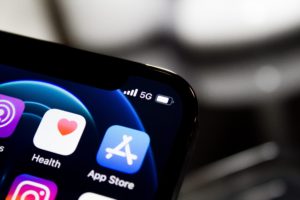Cydia is Getting a Chance to Prove its App Store Antitrust Claims Against Apple

By David Golden
Cydia, the alternative iOS app store, has been given the chance to seek discovery to prove its antitrust claims against Apple.
On May 26, 2022, Judge Yvonne Gonzalez Rogers of the U.S. District Court for the Northern District of California denied Apple’s motion to dismiss the antitrust claims of SaurikIT, the developer of Cydia.
SaurikIT alleges that Apple violated Sections 1 and 2 of the Sherman Act and the California Unfair Competition Law (“UCL”) by shutting down Cydia on iOS devices through a years-long campaign of technological and contractual restrictions. According to the plaintiff, Apple has eliminated all competition for its App Store and in-app payments (“IAP”) functionality on iOS devices.
If this fact pattern sounds familiar, it should. Less than four months before SaurikIT filed its original complaint, Epic Games filed an antitrust lawsuit against Apple that also alleged Apple’s iOS app distribution and in-app payment restraints violate the Sherman Act and the UCL. After a bench trial before Judge Gonzalez Rogers, Apple prevailed on Epic’s antitrust claims but lost on the UCL claim. Both Epic and Apple have appealed the ruling to the U.S. Court of Appeals for the Ninth Circuit.
Two differences between the cases are worthy of a brief examination.
First, Epic offered its popular Fortnite video game on iOS through Apple’s App Store, and agreed to be bound Apple’s contractual terms for iOS developers. Therefore, when Epic pushed a “hotfix” to enable non-Apple IAP payments in Fortnite, Epic breached its contract with Apple. Whether or not Apple’s contractual restraints were lawful to begin with, the court found Epic’s breach and “Project Liberty” campaign to be significant, which may have colored the court’s perception of Epic and its antitrust claims.
Based on publicly available information, SaurikIT stands in stark contrast to Epic. It offered Cydia on iOS devices before Apple created the App Store, and until Apple completely disabled their ability to do so, consumers could download Cydia over the Internet onto “jailbroken” iPhones, a legal way for iPhone users to modify the devices that they already own. SaurikIT did not use the App Store or enter into contracts with Apple to make Cydia available to consumers.
Second, the two cases present an interesting contrast in presenting evidence regarding the relevant product markets. In both the Epic and SaurikIT cases, the plaintiffs argue that there are separate markets for app distribution and IAP, which are sometimes referred to as “aftermarkets.” In Epic, the court rejected both the aftermarket theory and Apple’s all-device-encompassing digital video game market, instead finding that the relevant market to be “digital mobile gaming transactions.”
The court’s decision is suspect on both legal and factual grounds. For example, during its trial, Epic offered evidence that consumers used Epic’s in-game payment service and other alternatives when they were available, thus showing that there is a separate demand for IAP. Apple countered that its IAP system cannot be separated from the App Store because IAP is an efficient mechanism to collect its App Store commission. The court credited Apple’s argument, in part because Judge Rogers found Epic’s evidence of a separate demand for IAP.
Apple’s integrated IAP argument may not work in the SaurikIT case. Developers using the Cydia app store are not using Apple’s App Store infrastructure, so Apple might have a more difficult time claiming that it is owed any commission at all. In addition, Cydia has offered alternative IAP systems for years, including proven payment services like PayPal and Amazon. Therefore, SaurikIT could have a considerable amount of data to prove that there is a demand for separate IAP services and those services do not pose a security threat—another favorite argument of Apple to justify restrictions on competition.
The SaurikIT case also presents a deeper, fundamental question: can Apple lock down iOS, whether for app distribution or for IAP, when its App Store is not used at all? The Epic case presented that issue but in the context of an app developer already using Apple’s App Store. Cydia does not have that limitation. And other platforms, such as Google’s Android, do not so restrict developers. Therefore, the SaurikIT case will present a markedly different factual context for Judge Gonzalez Rogers to evaluate Apple’s restraints on both app distribution and IAP competition.
Written by David Golden
Edited by Gary J. Malone